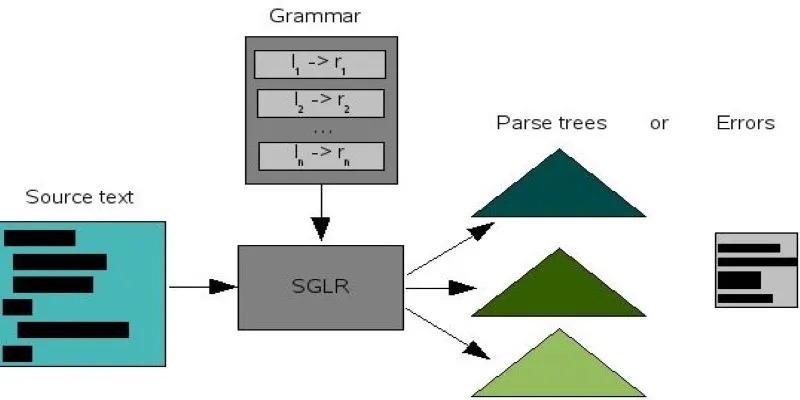Every sentence we speak or write is packed with small, seemingly insignificant words—“the,” “and,” “but,” “is.” We barely notice them, yet they hold language together. These are stop words, and while they may seem unimportant, they play a big role in how search engines, AI, and language models process text.
Imagine a search engine analyzing every single word in a query—it would waste time on words that don’t add much meaning. That’s why stop words are often filtered out, making searches faster and AI more efficient. But should they always be ignored? That depends on how language is being used.
Why Do Stop Words Matter?
Stop words may appear inconsequential, yet they are responsible for a lot when it comes to language processing. Search engines, for instance, want to bring the most relevant results for a user’s query. If search engines processed all words within a query, they would waste effort on words that do not matter to the search’s meaning. By excluding stop words, results are refined, leading to faster and more efficient searches.
In natural language processing (NLP) and artificial intelligence (AI), stop words influence models’ interpretation and generation of text. During language understanding training in AI, developers usually exclude stop words to avoid unnecessary data. This enhances efficiency since models concentrate on significant words that help them comprehend. However, in some cases, keeping stop words can be beneficial. For example, in sentiment analysis or question- answering systems, stop words provide context that helps determine tone and intent.
Stop words also affect search engine optimization (SEO). When sites are optimized for search rankings, authors need to consider how search engines interpret language. Since most search engines disregard stop words in keyword queries, emphasizing important terms enhances visibility. This is why SEO professionals focus on keywords while ensuring readability for human visitors.
How Do Stop Words Affect AI and Machine Learning?
AI models rely on large datasets to process and generate human-like language. When handling vast amounts of text, removing stop words helps reduce complexity. Without stop word filtering, AI systems would need to process unnecessary words, slowing down operations and requiring more computational power.

In machine learning, text-processing models often use a technique called tokenization, which breaks down sentences into individual words or phrases. If stop words are included in every analysis, models must process large volumes of text without much benefit. Removing them makes algorithms run more efficiently, allowing AI to focus on meaningful patterns.
For example, in chatbots and voice assistants, stop words are often filtered out to enhance responsiveness. If a user asks, “What is the best way to learn coding?” a chatbot trained with stop word removal might focus on “best way to learn coding” to deliver an answer faster. While the full sentence provides better readability for humans, AI does not always need stop words to interpret meaning.
Removing stop words isn’t always the best approach. Some AI models, particularly those that generate human-like text, benefit from keeping stop words. Language models like GPT-4, for instance, use stop words to produce natural-sounding responses. Removing them entirely would make AI-generated text sound robotic and unnatural.
When Should Stop Words Be Removed?
Deciding whether to remove stop words depends on the context in which language is processed. In search engines, stop words are generally filtered out because they don’t contribute much to a query’s meaning. This allows search algorithms to focus on keywords and deliver more relevant results. However, in certain cases, keeping stop words may improve comprehension.
For instance, legal documents, medical texts, and academic papers often require precise language. Removing stop words in these contexts could alter the meaning of a sentence. Similarly, in sentiment analysis, stop words help AI understand emotions and intent. A phrase like “I don’t like this” carries a different sentiment than “I like this.” If “don’t” were removed as a stop word, the meaning would be reversed, leading to incorrect analysis.
In AI-generated text and chatbots, keeping stop words makes conversations feel more natural. AI models trained on natural language generation (NLG) often retain stop words to produce human-like responses. A chatbot that removes stop words completely might produce awkward or confusing replies.
In the world of SEO and content creation, stop words should be used strategically. While search engines often ignore them, removing stop words entirely can make text unreadable. A well-balanced approach ensures that content remains both optimized for search engines and engaging for human readers.
The Future of Stop Words in AI and Search
As AI and search engines evolve, stop words are becoming more relevant. Traditional search engines removed them to focus on keywords, but with voice search and AI-driven assistants, natural language understanding is improving. Users now phrase queries conversationally, making stop words essential for context.

AI models are also advancing, allowing for better distinction between necessary and unnecessary words. Instead of strict removal, future AI systems may dynamically decide which stop words to keep based on context. This shift enhances search accuracy and improves chatbot interactions.
As AI becomes more human-like in processing language, stop words will play a greater role in shaping meaningful communication. In the years ahead, the balance between efficiency and contextual understanding will define how search engines and AI applications handle stop words.
Conclusion
Stop words may seem like insignificant elements of language, but they have a major impact on AI, search engines, and text processing. Whether they should be removed depends on the purpose of the analysis. Search engines ignore them to focus on meaningful keywords, AI models remove them to improve efficiency, and content creators balance them to ensure readability. Understanding stop words is essential for anyone working with search algorithms, AI development, or SEO strategies. While they may not carry much meaning individually, stop words help shape the way we communicate, search for information, and interact with AI.
 zfn9
zfn9






















